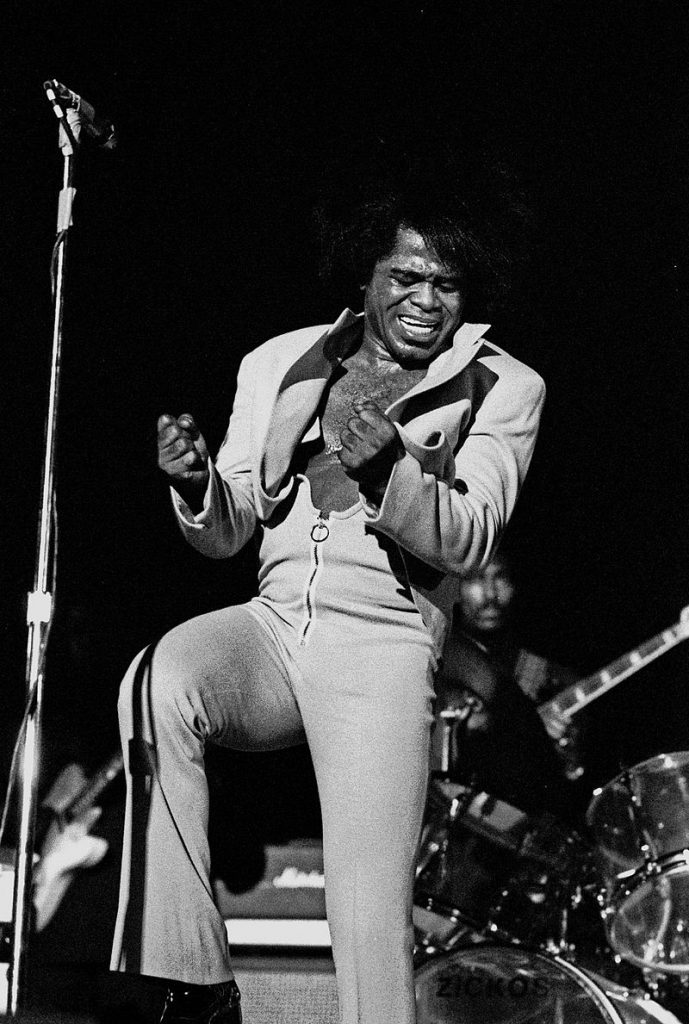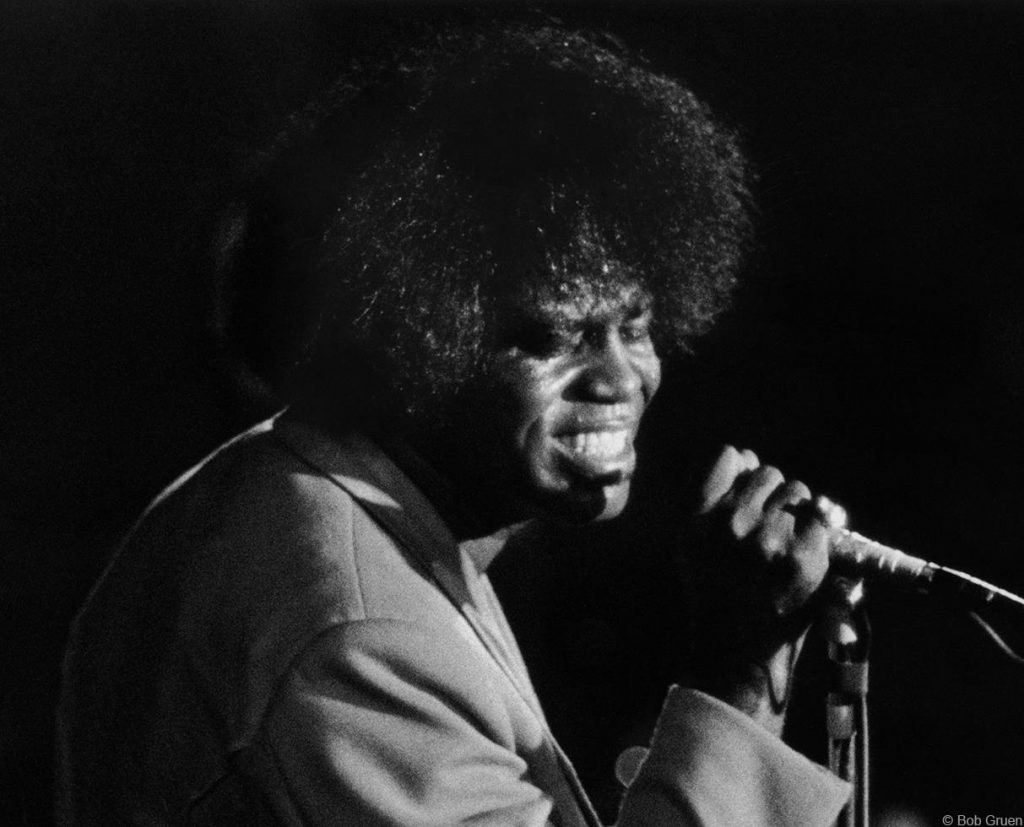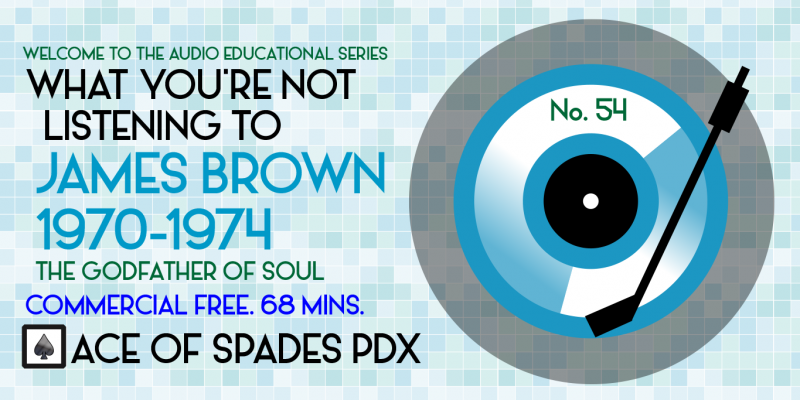Podcast: Play in new window | Download | Embed
The first half of the 1970’s proved not only to be Brown’s most challenging, electrifying and productive era but also signaled the end of his chart supremacy. #jamesbrown #godfatherofsoul
Back in 1991, Michael Jackson, through his manager and record company, sent a letter to all major media outlets telling them that if they did not introduce him as “The King Of Pop”, they could not air his latest video, “Black or White”. He would later go on to be interviewed by Oprah Winfrey about this request, denying this outright, regardless of the actual physical proof. Eyes rolled everywhere; sadly, it smelled of artist far removed from reality and steeped in megalomania.

Similarly, James Brown also gave himself an honorary title in 1974. Of course, this also happened to follow in a series of other honorary titles, some of them bestowed upon him, and others he had given himself. In order, they were:
- 1956: Mr. Please Please Please
- 1960: The Hardest Working Man In Show Business
- 1962: Mr. Dynamite
- 1967: Soul Brother #1
- 1970: The Minister of the New New Super Heavy Funk
- 1974: The Godfather of Soul.
It’s no secret that Brown was a shameless and often hilarious self-promoter, even dropping his own name in quite a number of his songs and many times giving interviews where he would talk about himself in the third person. Each of these titles actually represented new chapters in Brown’s career, where he broke and re-wrote the rules with each successive new stylistic shift. Unlike Jackson’s self imposed title, however, with Brown, no one batted an eye.
“I was the one who turned racist minstrelsy into black soul.”
James Brown, 1986, from his autobiography The Godfather of Soul
The period we cover here today saw Brown at his highest and lowest points, almost simultaneously. He was not only creating up to three albums of material and many non-LP singles under his own name, but launched a record label, People, that also had top selling artists with his backing band, The J.B.’s, along two of his proteges, Vicki Anderson and Lyn Collins. He was also facing increased pressure from the Black Panthers to record more socially relevant tracks as well. He was not only able to create top dance hits, but also message songs, sometimes on the same LP, with ever dazzling results. He even briefly grew out his process and sported an afro, a reflection of Natural Hair movement and a rejection of white standards of beauty for African-Americans.

It was also during this time he ran into problems with the IRS. At the time, it was estimated he owed $4 million in back taxes. In 2020 dollars, that would be over $23 million. He also seemingly did the unthinkable: Brown openly supported Richard Nixon for president in 1972. This cost him a huge part of his fan base for some time, particularly in the Black community. In 1973, many Black stations, his cornerstone for many years, refused to play his records. Undaunted, he spent a good part of the year touring the world to sellout crowds, particularly in Europe.

Things had calmed down somewhat by 1974, and Brown returned to the R&B and Pop charts with a vengeance that year, even headlining his first ever concert in Africa to coincide with the Muhammad Ali-George Foreman fight Rumble In The Jungle in Zaire. By 1975, new Funk groups (some with members of Brown’s previous backing bands) and more beat-heavy Disco acts, genres which, for argument’s sake, Brown basically created, started to eclipse The Godfather in terms of sales. Even though he kept releasing albums for years, just like Tina Turner had, he would not be recognized back on mainstream radio again until the mid-1980’s.
First Part
- Make It Funky (extended version), 1971
- Give It Up Or Turnit A Loose (Remix), 1970
- I Got A Bag Of My Own (Single Version), 1972
- The Payback (full-length version), 1974
- Super Bad (extended version), 1970
Second Part
- Get Up, Get Into It, Get Involved (album version), 1970
- Sexy, Sexy, Sexy (single version), 1973
- Think (re-recorded single version 1), 1973
- There It Is (album version), 1972
- Get On The Good Foot (extended single version), 1972
Finale
- Hot Pants (full-length album version), 1971
Love to you all.
Ben “Daddy Ben Bear” Brown Jr.
Host, Producer, Audio Engineer, Webmaster, Researcher and Writer
“Copyright Disclaimer Under Section 107 of the Copyright Act 1976, allowance is made for ‘fair use’ for purposes such as criticism, comment, news reporting, teaching, scholarship, and research. Fair use is a use permitted by copyright statute that might otherwise be infringing. Non-profit, educational or personal use tips the balance in favor of fair use.”
